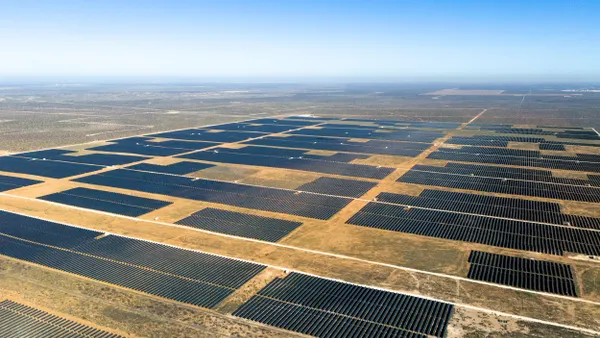Dive Brief:
- Sen. Angus King (I-Maine) on Tuesday expressed concern about the workability of the Clean Energy Performance Program, a key piece of the Biden administration's plan to decarbonize the U.S. grid. Speaking at an event hosted by grid operator ISO New England, King, a member of the Senate's energy committee, called the requirements of 4% annual growth in renewable energy a "tall order."
- The potential for cyber attacks and disruption to the U.S. grid by foreign adversaries remains one of the biggest challenges facing the utility sector, King told New England grid operators, warning the "next 9/11 will be cyber."
- Extreme weather is another major challenge grid operators will have to increasingly prepare for in light of the disruptions to the Texas grid caused by February's deep freeze, according to experts at ISO New England's 2021 Regional System Plan public meeting.
Dive Insight:
The $150 billion Clean Energy Performance Program cleared the House Energy and Commerce Committee on Sept. 14 as part of the $3.5 trillion budget reconciliation package being pushed by Democrats.
The renewable energy requirements embedded in the proposal — and the pace at which utilities are required to add renewable resources — has been a contentious point between progressive and moderate Democrats like West Virginia Sen. Joe Manchin as they attempt to hammer out a final deal.
Critics of the 4% annual requirement have pointed to the difficulties utilities may face getting new renewable projects and transmission infrastructure through state and federal permitting processes.
King noted a project in Maine that took four years to bring online.
"You have to have goals – if you don't have goals, you will never get there," King said. However, "our ability to develop resources on the time schedule, that is a pretty tall order, 4% a year in additional renewable capacity."
King also warned of what he sees as a growing threat of potentially catastrophic disruptions to the U.S. grid by hackers working for foreign adversaries.
King also said there is $65 billion for grid modernization in the $1 trillion bipartisan infrastructure bill, which has support from both sides of the aisle in the Senate, with that pool of money including funds to boost grid resiliency.
"In all the work we are doing, we have to keep in mind the challenge of cyber," King said. "I guarantee you right now there is someone in Moscow or St. Petersburg or Beijing or Shanghai working on how to penetrate ISO New England."
King called for closer ties between the federal government, utility companies and grid operators to combat the threat.
"This is a grave threat and you are the target," King said.
Extreme weather is another threat that grid operators across the U.S. will be facing increasingly, warned Bill Magness, former president and CEO of the Electric Reliability Council of Texas, citing lessons learned during that state's February grid crisis.
Texas avoided a total blackout through 70 hours of "rotating outages," he said.
Due to inadequate winterization, the cold froze gas supply to power plants and instruments as well.
"It was an extreme weather event," Magness said. "Being prepared for those worst cases is critical. You can have fuel, but if you don't have the ability to run the plant, you aren't going to go anywhere."













